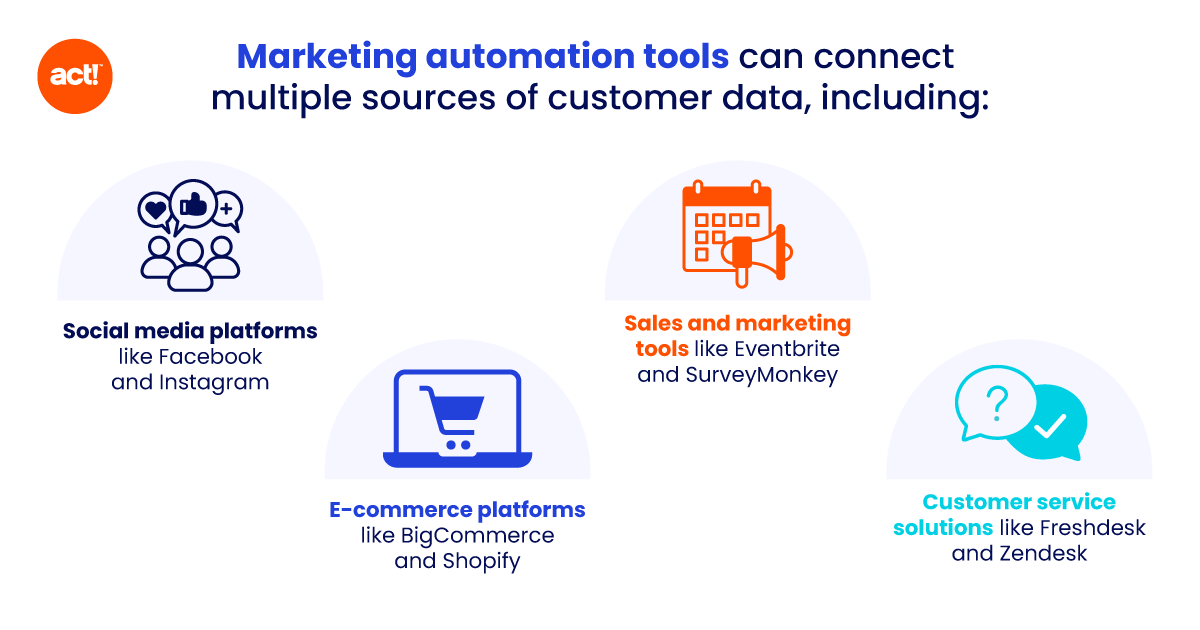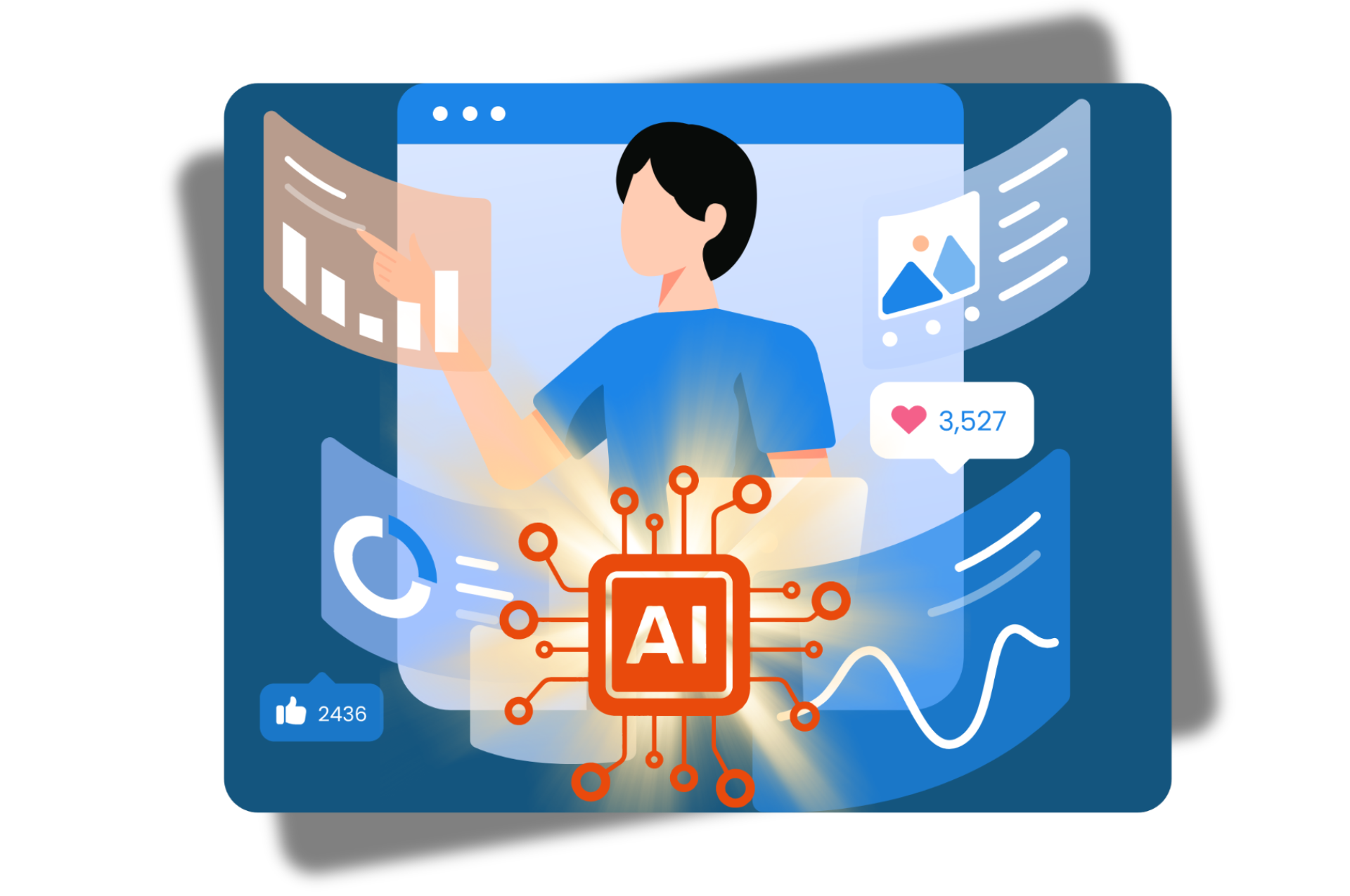Did you know that 59% of marketers believe artificial intelligence (AI) will revolutionize the marketing industry? Given the rapid advancements since the launch of ChatGPT in late 2022, it’s easy to see why. AI-driven tools like ChatGPT, Bard, Gemini, MidJourney, and many others are reshaping marketing strategies, enabling smarter decision-making and enhanced productivity.
However, experts agree that consumer AI technology is still in its early stages. As AI continues to evolve, it will play an increasingly significant role in both digital and traditional marketing.
In this article, we’ll explore the future of AI in marketing and highlight key trends shaping how brands engage with their audiences.
AI in Marketing Today: An Overview
AI-powered tools have been assisting marketers for years, but the rise of generative AI chatbots and content-generation platforms has made AI more accessible than ever.
For instance, ChatGPT saw over 550 million visitors in May 2024, with users spending an average of 13 minutes and 34 seconds per visit. And that’s just one AI tool—countless other AI-driven platforms are revolutionizing content production and transforming the marketing landscape.
From generating images and text to enhancing personalization and analytics, AI is empowering marketing teams to scale their efforts and discover innovative ways to engage audiences. Brands like Coca-Cola are utilizing AI-generated ads, while e-commerce businesses leverage AI-powered product images. Meanwhile, AI-generated influencer models are thriving on social platforms like Instagram.
However, AI is not an instant fix. A survey of over 1,000 B2B marketers found that 54% of professionals who don’t use AI cite a lack of training or understanding as the primary barrier. Without a solid grasp of AI’s capabilities, marketers risk falling behind in an increasingly competitive landscape.
Did you know? 54% of marketers who don’t use AI cite a lack of training or understanding as the biggest barrier.
How AI Enhances Marketing Efforts: Use Cases

1. Idea Generation for Campaigns
Marketers constantly seek fresh ideas to engage their audiences. AI accelerates this process by generating unlimited creative concepts in seconds. A 2023 study found that 51% of marketers use AI tools to brainstorm new content topics.
Whether you’re looking for unique blog post ideas, compelling article titles, or email subject lines, AI can help streamline the ideation process.
2. AI-Powered Content Creation
AI-driven platforms assist marketers in crafting blog posts, social media content, emails, case studies, and other marketing assets.
For example, Act! AI Writing Assistant enables users to generate personalized and engaging content for landing pages, email campaigns, and articles. It also supports translation into multiple languages for broader audience reach. Need a webinar announcement or video script? AI-powered writing tools can generate quality copy with just a few prompts, reducing content production costs and accelerating campaign launches.
3. Website and Landing Page Design
Generative AI is making it easier than ever to design websites and landing pages. AI-powered site builders allow marketers to create and customize web designs with minimal effort, optimizing the user experience without requiring advanced coding skills.
Did you know? 59% of marketers believe AI will revolutionize the marketing industry.
4. Automating Customer Interactions
AI chatbots and virtual assistants are now essential for modern customer engagement. These tools leverage machine learning to understand queries and respond in a natural, conversational tone.
Studies show that 35% of consumers believe AI chatbots can resolve their issues effectively. When implemented correctly, chatbots reduce support costs, enhance customer experience, and provide invaluable insights for future marketing strategies.
The Future of AI in Marketing: Emerging Trends
1. Hyper-Personalization
AI will continue to drive hyper-personalization, delivering tailored content, product recommendations, and marketing messages based on consumer preferences and behaviors.
To stay ahead, brands must invest in AI-powered data analytics and marketing automation tools. A fully integrated CRM and marketing automation platform enables businesses to track user activity, optimize messaging, and enhance customer interactions.
2. Realistic Content Generation
As AI advances, generative models will produce increasingly realistic and human-like content—including text, images, and videos. This will enhance advertising efforts, allowing brands to create compelling product visuals, ad copy, and automated bidding strategies.
However, as AI-generated content becomes widespread, brands will need to differentiate themselves by mastering AI prompt engineering and adding unique value to their messaging.
3. Real-Time Customer Journey Mapping
AI will soon enable real-time mapping of customer journeys, allowing marketers to instantly adapt their strategies based on user interactions. This agility will improve responsiveness and lead to more personalized customer experiences.
An integrated CRM system will be crucial in tracking these journeys and providing actionable insights.
4. Predictive Analysis and Deeper Insights
AI marketing tools will increasingly use predictive analytics to forecast trends, identify emerging customer needs, and optimize decision-making.
For brands to capitalize on this, they must implement integrated tracking systems across websites, apps, and social platforms. Without comprehensive data collection, AI-driven insights will be incomplete and less effective.
Embrace AI to Elevate Your Marketing Strategy
AI is no longer a futuristic concept—it’s a must-have technology for modern marketers. By embracing AI-powered tools, you can accelerate content creation, automate tasks, enhance audience engagement, and leverage predictive insights to stay ahead of the competition.
Act! offers an AI-powered CRM and marketing automation platform, complete with an AI Writing Assistant and customer journey tracking tools. Ready to harness the power of AI in marketing?
Try Act! for free today and experience the future of AI-driven marketing.


